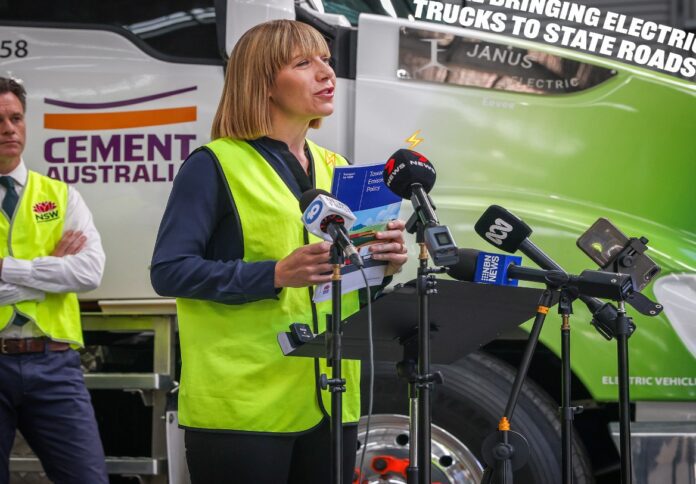
The NSW Government has unveiled a new policy aimed at reducing emissions in the heavy road and rail freight sector, which is a significant step in its commitment to achieving net zero emissions by 2050.
The “Towards Net Zero Emissions Freight Policy” is designed to address the environmental impact of heavy vehicles and rail freight, which currently contribute 25 per cent of total transport greenhouse gas emissions in NSW.
With freight demand projected to increase by 34 per cent by 2061, the policy aims to curb emissions and encourage the adoption of low and zero-emission technologies within the industry.
Under the new policy, the NSW Government will collaborate with the freight industry to support the transition to cleaner technologies while ensuring that the transport network can adapt to evolving solutions.
To kickstart the transition, a two-year trial will grant additional mass allowances to zero-emission heavy vehicles, which tend to be heavier due to their battery systems, providing the industry with the confidence to invest in eco-friendly technologies without compromising freight capacity.
To further assist the freight industry, an online comparison tool has been developed to offer accurate information on the cost and environmental advantages of low and zero-emission vehicles.
This resource will help operators make informed decisions and encourage the uptake of cleaner transportation solutions.
Premier Chris Minns emphasized the importance of collaboration between government and industry, stating, “Reducing freight emissions requires a genuine partnership between government and industry. We’re always going to need a freight sector to get the essentials from A to B, so we need to make sure our freight industry is sustainable over the long term.”
Minister for Transport Jo Haylen underscored the policy’s economic advantages, asserting that it goes beyond emission reduction and environmental protection.
Instead, it aims to bolster the economy by fostering innovation, generating employment opportunities, and enhancing competitiveness.
Meanwhile, Minister for Regional Transport and Roads Jenny Aitchison acknowledged the unique challenges faced by regional freight operators in achieving net-zero emissions,
“The NSW Government recognises the unique challenges for regional, rural and remote freight operators in achieving net zero. By working directly with industry we will be able to support them in accessing this innovative technology and ensure regional operators can access the benefits of the transition,” Minister Aitchison noted.
The government said the Towards Net Zero Emissions Freight Policy represents a substantial role in curbing emissions within the transportation sector.
The NSW Government said it is actively addressing obstacles to expedite the adoption of this policy, all while considering the challenging operational conditions faced by the freight sector.


















